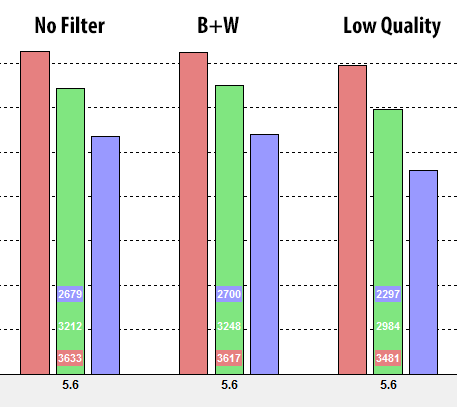The subject of using or not using protecting lenses can invoke heated arguments among photographers, with both sides frequently fiercely defending their choices. We are not going to debate whether it is right or even wrong to use protective filters – that’ s certainly a personal option. I have been using them for a number of years how to protect my higher-end lenses plus make it easier to clean lenses along with recessed front elements (such because on Nikon 50mm f/1. 4-G / f/1. 8G). Having had poor experience with purchasing a low-quality no-name brand name filter when I just started picture taking (it was sold to me like a “ must-have” at a local picture store), I learned what this kind of filter can do to my photos hard way. Since then, I have only already been purchasing multi-coated B+W filters apply high-quality Schott glass. I have been happy with these filters and have been informing our readers to either make use of the best they can find, or not make use of filters at all.
A few weeks ago, I received a bunch of filter systems from a new filter manufacturer within Europe. The company wanted me to check their filters and see what I consider them. I asked them when they would be comfortable with me comparing their particular filters to B+W and they informed me that they did not mind. As I has been testing a lens in my Imatest lab a couple of days ago, I initial shot a test chart without filter systems at f/5. 6, then piled 4 of my 77mm B+W XS-Pro MRC filters and got another shot, then finally installed 4 filters from the new producer and took the last shot. Listed below are the numbers that were produced by Imatest :

As you can see, the particular B+W filters had no effect on image quality. The differences in figures between “ No Filter” plus “ B+W” you see above are usually within the margin of error. Nevertheless , if you look at the third graph, it really is pretty clear that the filters which i was testing were of poor. There is a rather significant drop of around 5% in the center frame, the drop of 7% in the mid-frame and a pretty significant drop associated with close to 15% in the corners. To ensure that I was not making any mistakes, I re-ran the test several times plus used completely different sets of filter systems from the same manufacturer (I a new total of about 20 77mm filter systems that manufacturer regarded as “ higher quality” ). Other batches produced similar reduced numbers, some even worse than others.
I needed to see what a 15% difference within score represents visually, so I had taken extreme corner image crops through an image that was shot with 4x B+W filters and the same with 4x lower quality filters. Here is what the particular comparison looks like:

As you can see, the difference in clarity is pretty clear – lower high quality filters certainly result in visible picture degradation. Details are blurred as well as the straight lines are no longer sharp. Which is just sharpness alone. If I chance with the two in a high comparison situation (say shooting against the sun), I bet the low-quality filter systems would introduce all kinds of artifacts to a photos.
Yes, it is a rather extreme example and I realize that nobody would stack 4 filter systems like I did above. If 1 were to look at images with an one filter, the differences would be very minimum. However , that’ s not the things i am trying to show here. The idea of the article is to show that will high quality filters have no effect on clarity and do not necessarily reduce image high quality, as some photographers claim. It is certainly the situation with lower quality filters although. The only thing that filters might introduce in order to images, is more flare and ghosting when shooting against a light source. In those situations, it may be best to remove filters altogether.
Lastly, keep in mind that the filter systems I tested were regarded as “ pro” filters. If you are curious to learn what a single cheap / poor quality filter can do to an picture, see this short article that I posted this past year.
Moral of the over research: not all lens filters are created the same, even from the same “ high-quality / pro” category…

